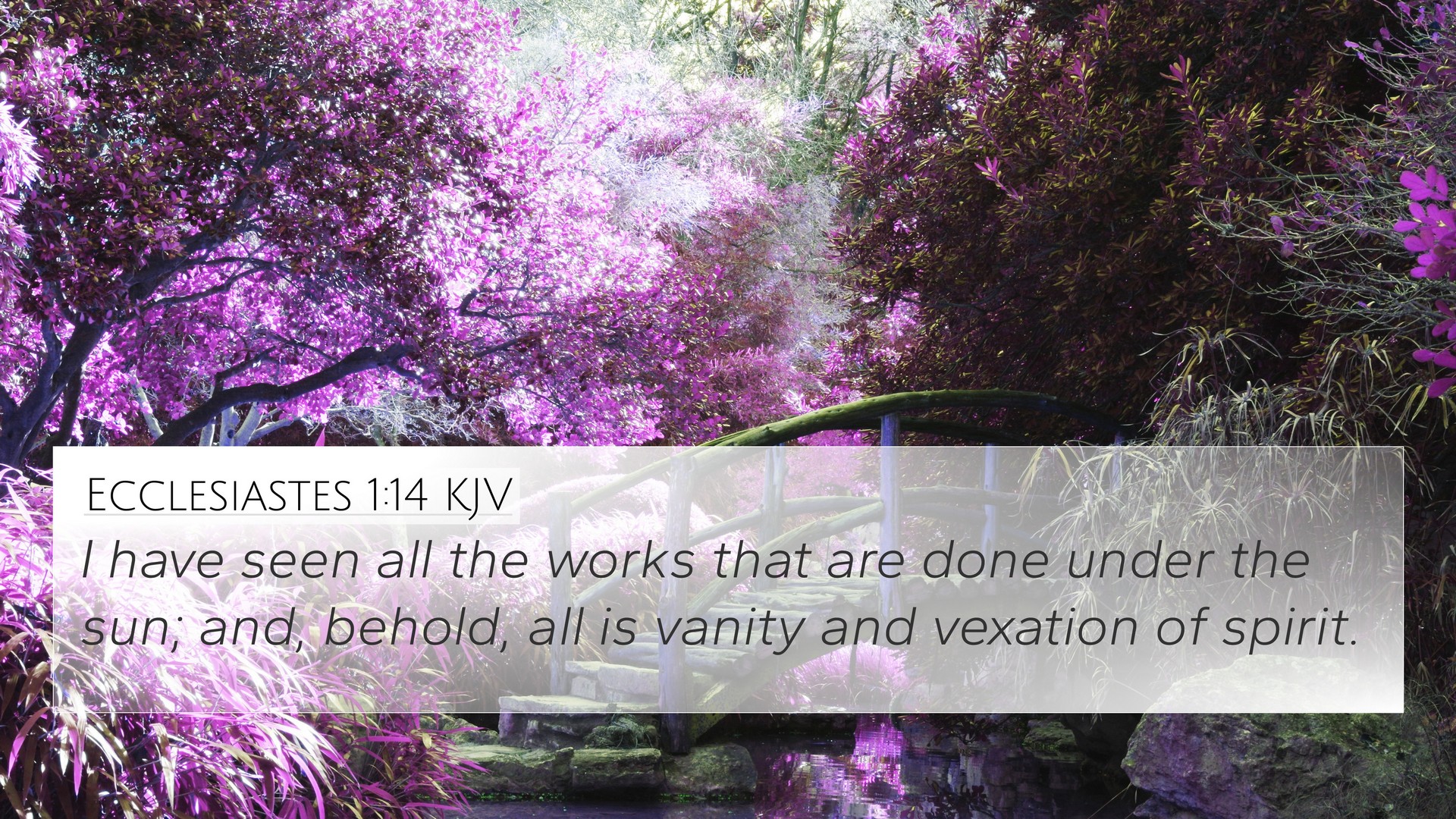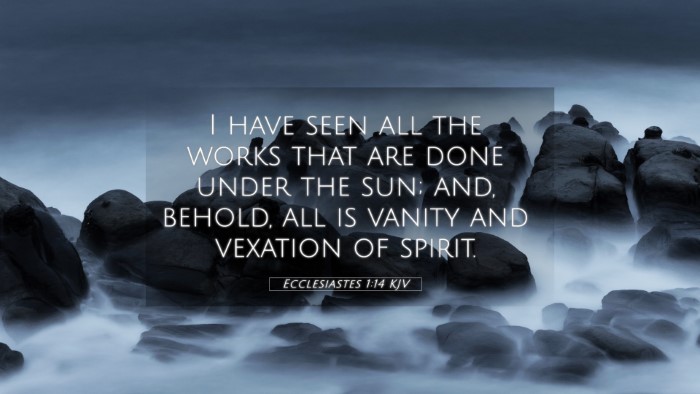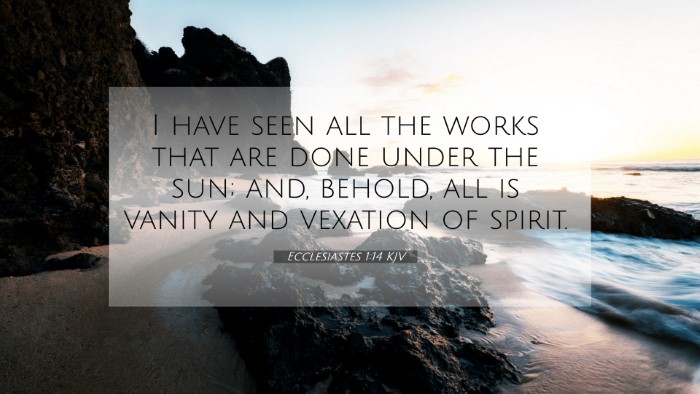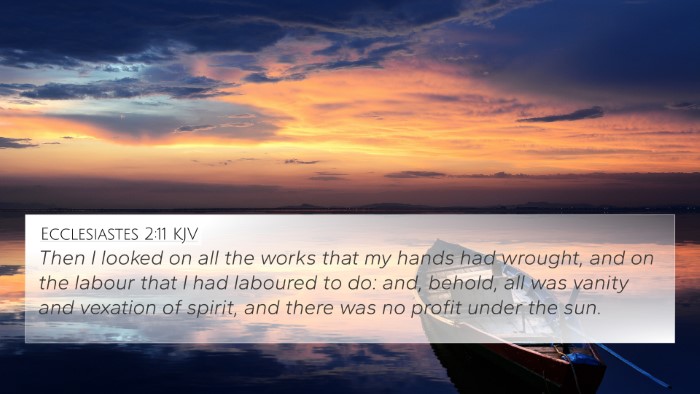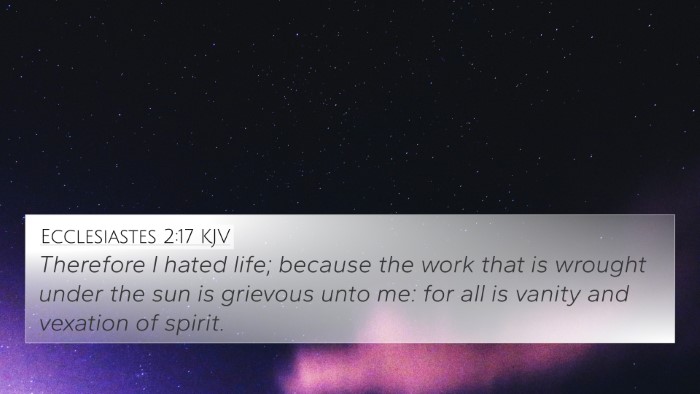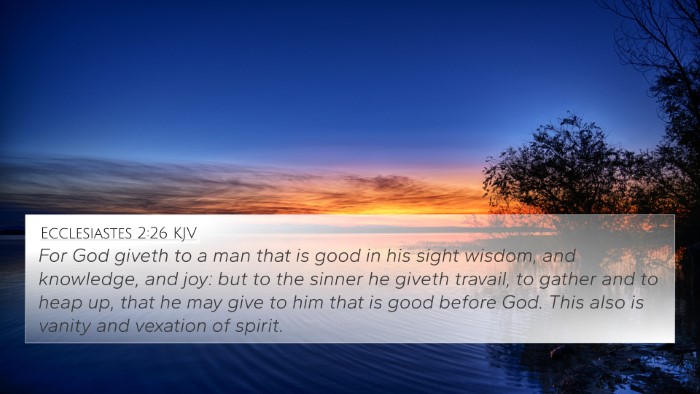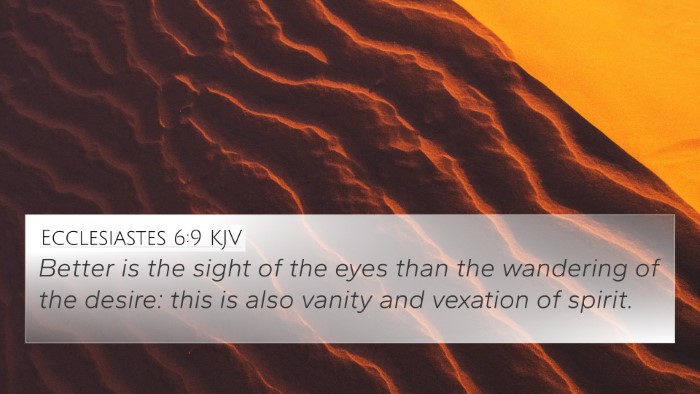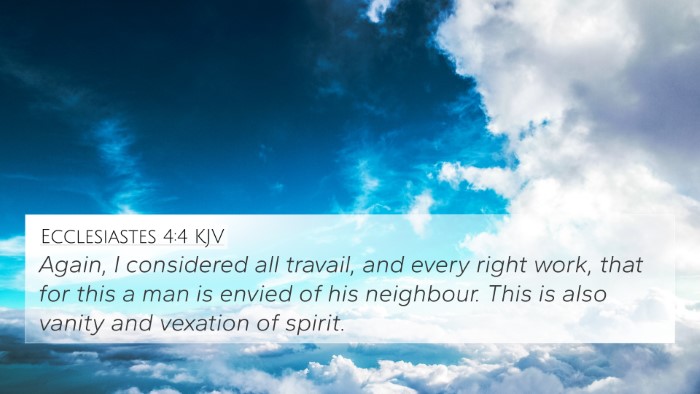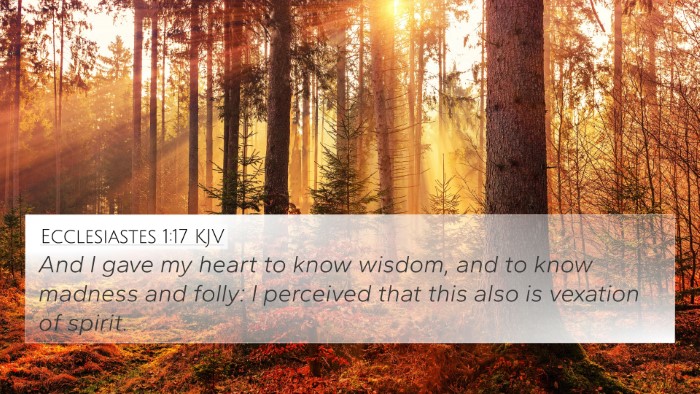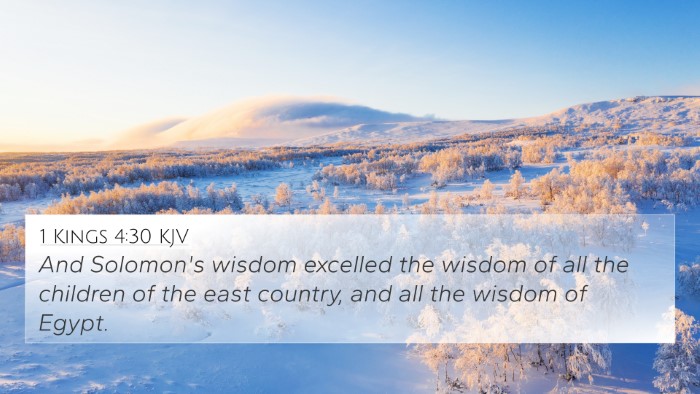Understanding Ecclesiastes 1:14
Ecclesiastes 1:14 states: "I have seen all the works that are done under the sun; and, behold, all is vanity and vexation of spirit." This verse captures the essence of the book of Ecclesiastes, which reflects on the meaning and purpose of life. The author, traditionally known as Solomon, explores the futility of human endeavors and the fleeting nature of worldly pursuits.
Summary of the Verse Meaning
The phrase "all the works that are done under the sun" suggests an exhaustive observation of human activities and achievements. The conclusion drawn by the author is one of despair—"all is vanity and vexation of spirit." This realization emphasizes the transient nature of life and the inefficacy of seeking fulfillment solely through material or earthly gain.
Commentary Insights
- Matthew Henry notes that Solomon's observations indicate the emptiness that often characterizes human efforts. He emphasizes that without a proper relationship with God, all labor is ultimately fruitless.
- Albert Barnes adds that humanity's endeavors, no matter how grand or numerous, lead to disappointment when they are separated from a divine purpose. He underscores the idea that life is like a wind that is ever elusive.
- Adam Clarke reflects on the idea of "vanity," which can be understood as lack of substance or value. He elaborates that such a pursuit leads to "vexation of spirit," which speaks to a deep inner turmoil faced by individuals disconnected from spiritual truth.
Cross-References to Ecclesiastes 1:14
This verse holds connections to various other scriptures that echo similar themes of futility, purpose, and the pursuit of wisdom:
- Proverbs 21:4 - "A high look, and a proud heart, and the plowing of the wicked, is sin." This highlights the vanity of pride and earthly achievement.
- Psalm 39:5 - "Behold, thou hast made my days as an handbreadth; and mine age is as nothing before thee: verily every man at his best state is altogether vanity." This psalm echoes the fleeting nature of life.
- Isaiah 40:6-8 - "All flesh is grass, and all the goodliness thereof is as the flower of the field: the grass withereth, the flower fadeth: because the spirit of the Lord bloweth upon it: surely the people is grass." This draws a parallel between human endeavors and the ephemeral nature of grass.
- Philippians 3:7-8 - "But what things were gain to me, those I counted loss for Christ." This New Testament reflection resonates with the futility of earthly gains compared to spiritual wealth.
- James 4:14 - "For what is your life? It is even a vapor, that appeareth for a little time, and then vanisheth away." This verse succinctly captures the transient nature of human existence.
- Romans 8:20-21 - "For the creation was subjected to vanity, not willingly, but by reason of him who hath subjected the same in hope." This introduces the concept of systemic futility due to the fallen world, connecting to Ecclesiastes' themes.
- Matthew 6:19-21 - "Lay not up for yourselves treasures upon earth, where moth and rust doth corrupt, and where thieves break through and steal." This admonishes against accumulating earthly treasures, reinforcing Ecclesiastes 1:14's message.
Thematic Connections
Ecclesiastes 1:14 encourages readers to reflect on the themes of:
- Futility of Life - The realization that much of what human beings strive for ultimately proves meaningless in the grand scope of existence.
- Spiritual Fulfillment - The need for a relationship with God as the source of true meaning and purpose.
- Temporal Nature of Earthly Achievements - An emphasis on the brevity of life and the transient success that human pursuits can bring.
Applying the Verse
For those seeking to deepen their understanding of Ecclesiastes 1:14 through cross-referencing, consider utilizing various tools for Bible cross-referencing. A bible concordance or a cross-reference Bible study guide can assist in uncovering the intricate web of connections between biblical texts. Engaging in comparative Bible verse analysis can enrich one's study and draw out the deeper theological insights present in the scriptures.
Conclusion
Ecclesiastes 1:14 is more than a reflective statement; it serves as a profound lesson on the nature of life, encouraging believers to seek meaning beyond mere earthly pursuits. Through scriptural cross-referencing and inter-Biblical dialogue, one can explore further the lasting truths embedded within the scripture. The call is clear: finding fulfillment in God rather than in vain worldly endeavors is the key to a meaningful existence.
